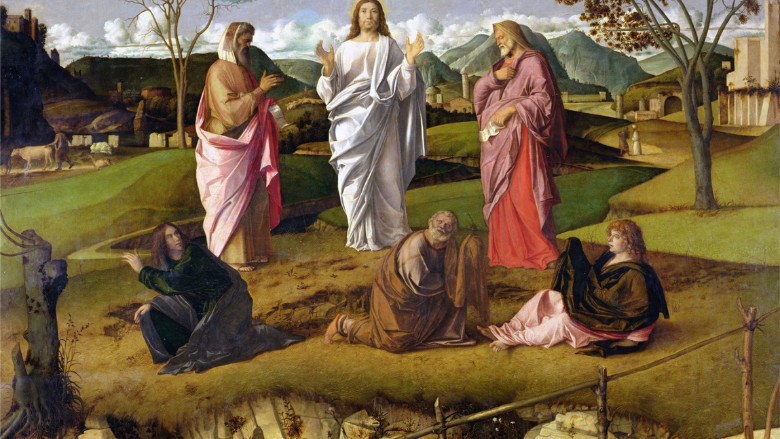
(Photo Credit Wikicommons)
By Adam Rieger
The bible’s pages are brimming over with interesting people drawn into salvation history. When I would read the saints early in my ‘reconversion,’ I often preferred those saints who were like St. George, riding on horseback and slaying evil dragons. I was on the lookout for my own demons to slay. However, while I was busy skewering anything which assailed me, God was waiting patiently. Waiting for me to get tired and take a step back because, in all that frenzy and activity, something was missing.
In this Sunday’s Gospel, Peter, John, and James climb to the heavenly heights with God showing the way. Jesus leads them into what is arguably the most amazing theophany (a revelation of God visible to the senses) that has yet to happen on earth. Elijah and Moses, prophet and leader, appear with our Lord. Christ’s garments become a dazzling white. The color reveals Christ’s sharing in the Father’s divinity. Visible to the naked eye, the three witnesses see reality for what it truly is. But where do we fit into the story?
Surely, if I’m in any story worth telling, I’m a knight decked out in armor and ready to do my Lord’s will. I want to be a strong hero, steady in both word and deed. Meanwhile, our three musketeers in the Gospel reading are said to be “sleepy” at a pivotal moment in their lives. In a biblical narrative, a sleeping protagonist almost always indicates that God alone is active–removing human agency from the outpouring of divine grace. But suddenly, they awake! The Lord wakes them. They become aware, and Peter instantly goes into action. He starts blabbering about shelters–it would appear he wants to build a tabernacle, a place for God to dwell. The Scriptures, which rarely add side commentary, state bluntly that Peter “did not know what he was saying.”
Finally, we have here something I can actually relate to. The protagonists during the transfiguration are but dozy witnesses caught murmuring without sense. Likewise, I drop the ball constantly. I misspeak all the time. I usually don’t feel like a hero at all, but rather an average Joe stumbling through a series of increasingly difficult obstacles.
During the transfiguration, Moses is revealed in his heavenly glory. But his life was not so different from that of the Apostles. When he sees the burning bush, another amazing theophany, and begins his journey with God, the best thing he has to say is that he can’t say anything. In response, the Lord fetches Moses’ brother Aaron and commands him to speak in his stead. It is the same Aaron, chosen specifically by God, who ends up being the lead architect in the golden calf debacle. Moses did not have the characteristics which one would typically associate with the hero of an epic story. He was neither eloquent nor charismatic. Aside from being on the run for murder, he wasn’t that remarkable.
This is a wonderful message of hope. We are in a Jubilee Year, a year of forgiveness and renewal. Our hope is revealed in these words from first Corinthians: “God chose what is foolish in the world to shame the wise, God chose what is weak in the world to shame the strong, God chose what is low and despised in the world, even things that are not, to bring to nothing things that are.” (1 Cor 1:26-28) When we see our weaknesses and failures with humility, when we see ourselves as we truly are, then we become the prime candidates for God’s grace. The more broken, weak, and forlorn that we are, the more attractive we are to God’s mercy. The loving Father cannot resist the cries of His children.
Humility is absolutely essential here. First Corinthians explains one reason why God acts this way: “so that no human being might boast in the presence of God.” (1 Cor 1:29) Likewise in second Corinthians St. Paul takes up the same theme and announces: “I will boast all the more gladly of my weaknesses, so that the power of Christ may dwell in me.” (2 Cor 12:9) The only real barrier between God’s grace and myself is pride. Without humility, our projects are little more than personal towers of Babel. Doomed to collapse. Destined to fall.
Therefore, if you are weak, rejoice! If you are tired and lonely, rejoice! If you do not have what it takes to take on the world, rejoice with all your might! For it’s with you that God chooses to reside. We will not be the knights of a bygone era. For as the psalmist says: “If the Lord does not build the house, in vain the mason toils” (Ps 127:1). God is the true Knight, and we are His servants. He is the real Hero, and we are called from our lowliness to be participants in His grace-filled story.

